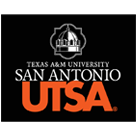Document Types
Individual Presentation
Location
UTSA Downtown-Riverwalk
Start Date
2-23-2024 4:20 PM
End Date
2-23-2024 4:40 PM
Abstract
Abstract: As Latinx enrollment in US university Spanish-language courses continues to rise (Beaudrie & Marrero-Rivera, forthcoming), numerous studies detail the transformative potential of SHL pedagogy for US Latinxs as an educational experience (e.g., Holguín Mendoza, 2018; Leeman, 2005). Recent progress has been driven by the study of language ideologies as a critical area of inquiry to reckon with the disparities that US Latinxs face within SHL education (Loza & Beaudrie, 2022). Such disparities are predicated on dominant raciolinguistic ideologies that often impose idealized language varieties and identities on Latinx youth (Barillas Chón, 2022). Although critical materials, curriculum, and pedagogical approaches have flourished, research focused on the SHL classroom remains scarce, particularly in relation to teacher development (Carreira & Kagan, 2018). As an under examined area within the field, there is a pressing need to develop stronger teacher preparation models for teachers who deliver language or content instruction to heritage learners – especially given that traditional and prescriptive pedagogy grounded in dominant ideologies continues to influence how language teachers approach SHL education (Beaudrie & Loza, 2023).
This chapter aims to critically examine case studies from our collective research wherein teachers and SHL learners discuss representations of Us versus Them to denote their membership to ideological groups and, in turn, to denote dominated groups of speakers (van Dijk, 2016). Our discussion describes teachers’ essentialized views of their students’ language varieties and identities, and how this has led to instances of the students’ multifaceted and dynamic identities being erased in the SHL classroom. We argue that this erasure is based on raciolinguistic ideologies about who SHL learners are and assumptions about who they are not. We propose points of consideration for SHL teacher preparation that specifically address these issues and how they come into play in the classroom.
Keywords: CLA, Teacher training, Pedagogy, Raciolinguistics
References:
Barillas Chón, D. W. (2022). K’iche’, Mam, and Nahua Migrant Youth Navigating Colonial Codes of Power. Urban Education 0(0). https://doi.org/10.1177/00420859211073902
Beaudrie, S. M. & Loza, S. (2023). Heritage Language Program Direction: Research into Practice. Routledge.
Carreira, M., & Kagan, O. (2018). Heritage language education: A proposal for the next 50 years. Foreign Language Annals, 51(1), 152-168. https://doi.org/10.1111/flan.12331
Holguín Mendoza, C. (2018). Critical language awareness (CLA) for Spanish heritage language programs: Implementing a complete curriculum. International Multilingual Research Journal, 12, 65–79. https://doi.org/10.1080/19313152.2017.1401445
Leeman, J. (2005). Engaging critical pedagogy: Spanish for native speakers. Foreign Language Annals, 38(1), 35-45. https://doi.org/10.1111/j.1944-9720.2005.tb02451.x
Loza, S., & Beaudrie, S. M. (Eds.). (2022). Heritage language teaching: Critical language awareness perspectives for research and pedagogy. Routledge. https://doi.org/10.4324/9781003148227
van Dijk, (2016). Critical discourse studies: A sociocognitive approach. In R. Wodak & M. Meyer (Eds.), Methods of Critical Discourse Studies (pp.62-85). Thousand Oaks, CA: Sage Publishers.
Recommended Citation
Ochoa, Valeria and Loza, Sergio, "Teachers’ raciolinguistic ideologies in the SHL classroom: Considerations for SHL teacher development" (2024). 11th National Symposium on Spanish as a Heritage Language. 21.
https://digitalcommons.tamusa.edu/heritage_spanish/SCHEDULE/Friday/21
Teachers’ raciolinguistic ideologies in the SHL classroom: Considerations for SHL teacher development
UTSA Downtown-Riverwalk
Abstract: As Latinx enrollment in US university Spanish-language courses continues to rise (Beaudrie & Marrero-Rivera, forthcoming), numerous studies detail the transformative potential of SHL pedagogy for US Latinxs as an educational experience (e.g., Holguín Mendoza, 2018; Leeman, 2005). Recent progress has been driven by the study of language ideologies as a critical area of inquiry to reckon with the disparities that US Latinxs face within SHL education (Loza & Beaudrie, 2022). Such disparities are predicated on dominant raciolinguistic ideologies that often impose idealized language varieties and identities on Latinx youth (Barillas Chón, 2022). Although critical materials, curriculum, and pedagogical approaches have flourished, research focused on the SHL classroom remains scarce, particularly in relation to teacher development (Carreira & Kagan, 2018). As an under examined area within the field, there is a pressing need to develop stronger teacher preparation models for teachers who deliver language or content instruction to heritage learners – especially given that traditional and prescriptive pedagogy grounded in dominant ideologies continues to influence how language teachers approach SHL education (Beaudrie & Loza, 2023).
This chapter aims to critically examine case studies from our collective research wherein teachers and SHL learners discuss representations of Us versus Them to denote their membership to ideological groups and, in turn, to denote dominated groups of speakers (van Dijk, 2016). Our discussion describes teachers’ essentialized views of their students’ language varieties and identities, and how this has led to instances of the students’ multifaceted and dynamic identities being erased in the SHL classroom. We argue that this erasure is based on raciolinguistic ideologies about who SHL learners are and assumptions about who they are not. We propose points of consideration for SHL teacher preparation that specifically address these issues and how they come into play in the classroom.
Keywords: CLA, Teacher training, Pedagogy, Raciolinguistics
References:
Barillas Chón, D. W. (2022). K’iche’, Mam, and Nahua Migrant Youth Navigating Colonial Codes of Power. Urban Education 0(0). https://doi.org/10.1177/00420859211073902
Beaudrie, S. M. & Loza, S. (2023). Heritage Language Program Direction: Research into Practice. Routledge.
Carreira, M., & Kagan, O. (2018). Heritage language education: A proposal for the next 50 years. Foreign Language Annals, 51(1), 152-168. https://doi.org/10.1111/flan.12331
Holguín Mendoza, C. (2018). Critical language awareness (CLA) for Spanish heritage language programs: Implementing a complete curriculum. International Multilingual Research Journal, 12, 65–79. https://doi.org/10.1080/19313152.2017.1401445
Leeman, J. (2005). Engaging critical pedagogy: Spanish for native speakers. Foreign Language Annals, 38(1), 35-45. https://doi.org/10.1111/j.1944-9720.2005.tb02451.x
Loza, S., & Beaudrie, S. M. (Eds.). (2022). Heritage language teaching: Critical language awareness perspectives for research and pedagogy. Routledge. https://doi.org/10.4324/9781003148227
van Dijk, (2016). Critical discourse studies: A sociocognitive approach. In R. Wodak & M. Meyer (Eds.), Methods of Critical Discourse Studies (pp.62-85). Thousand Oaks, CA: Sage Publishers.


